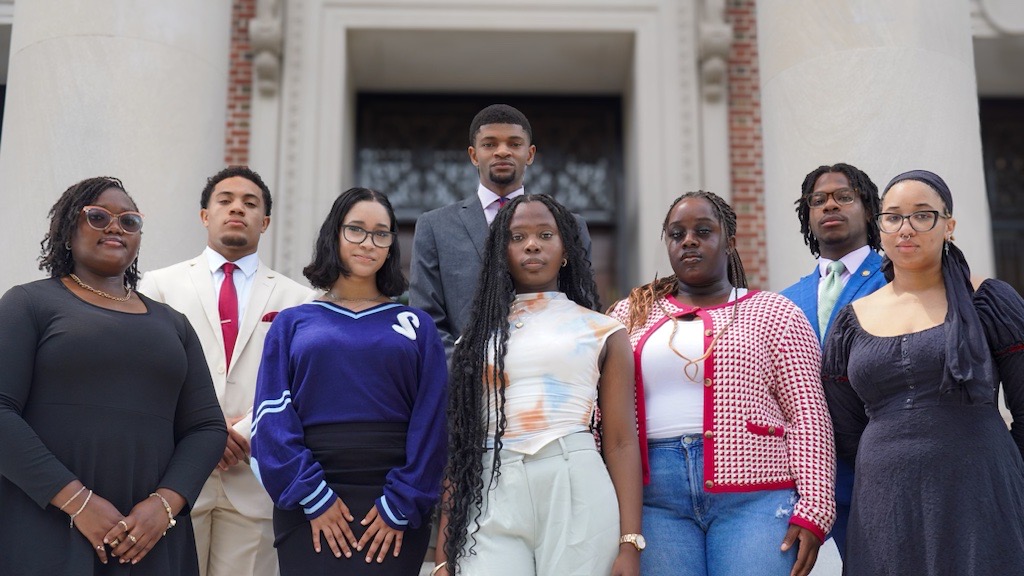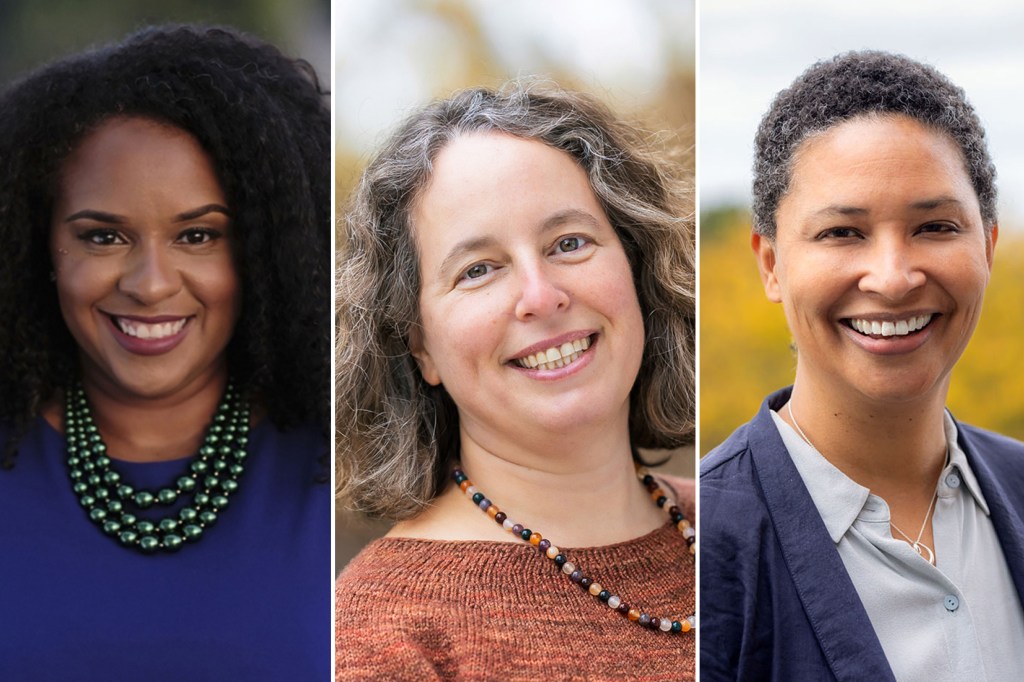As collaborations with local organizations advance, H&LS and Harvard welcome inaugural Du Bois Scholars and visiting faculty

“Transformational” and “growth-oriented.” These are just two descriptions members of the Du Bois Scholars Program used to summarize their experience.
This summer, 20 rising college juniors and seniors from 12 Historically Black Colleges and Universities (HBCUs) joined Harvard College’s Summer Undergraduate Research Village as the first cohort of the Du Bois Scholars Program. Funded by Harvard College and the Harvard & the Legacy of Slavery (H&LS) Initiative, the Du Bois Scholars Program gets its name from the University’s first Black Ph.D. graduate, W.E.B. Du Bois. The program enables HBCU scholars to pursue rigorous research and engage with learning environments that foster intellectual growth and personal development.
“There is no way you can leave this experience the same as you came in. My time working in the lab has allowed me to work with other people, and I think that was the biggest thing that I wanted out of this experience – to not do it by myself,” said Evan Spann, a Du Bois Scholar and rising junior at Morehouse College, who studies psychology. Spann’s research at Harvard this summer focused on environmental health disparities in Chelsea and Dorchester.
“It’s important to be surrounded by other HBCU students in this cohort because each of us brings our own genius, our own light to the group,” Spann said.
The Du Bois Scholars were paired with Harvard faculty mentors to conduct research over nine weeks. At the end of the term, they presented their research and reflected on what they had learned.
“The rigorous academic environment of the Du Bois Scholars Program and emphasis on leadership have bolstered my confidence and sharpened my critical thinking skills,” said Yasmeen Olass, a Du Bois Scholar and a junior studying biochemistry at Delaware State University.

Rita Hamad, associate professor of social and behavioral sciences, who served as a faculty mentor, said she could see how the Du Bois Scholars impacted the research in her area.
“At the [Social Policies for Health Equity Research] Center, we study a lot about health equity and the roots of structural racism and other social and economic factors and how they affect health. This program gets at that, and it really is trying to address the root causes of inequities in academia more generally,” Hamad said.
In addition to the Du Bois Scholars Program, H&LS recently launched several other partnerships with HBCUs:
- The Executive Leadership Institute, a multi-year initiative supported by H&LS in collaboration with the Harvard Graduate School of Education (HGSE) and Clark Atlanta University. The institute includes the participation of new HBCU presidents in HGSE’s annual Harvard Seminar for New Presidents.
- The Faculty of Arts and Sciences (FAS) Deans Visiting Professorship Program is in its inaugural year. Created by then FAS Dean Claudine Gay with the support of the FAS divisional deans in 2023, H&LS has partnered with the Harvard FAS to welcome four HBCU faculty members to teach at Harvard during the 2024-2025 academic year.
- The HBCU Digital Library Trust, co-funded by H&LS and Harvard Library, is a partnership between Harvard Library and the HBCU Library Alliance. Launched in March 2023, it aims to expand the discovery, preservation, and digitization of archival materials at HBCUs and make them freely available to the public. Unique archival materials from HBCUs are scanned, collaboratively described, and deposited into the existing HBCU Digital Collection located within the Atlanta University Center (AUC) Woodruff Library.

Investing in local organizations and making history more accessible
In addition to the work within Harvard, H&LS has also continued to support external initiatives that invest in the work of local community organizations, as well as expand opportunities to develop a deeper understanding of the history and legacy of slavery.
Launched in fall 2023 through a request for proposals process, H&LS selected 14 community organizations in Boston and Cambridge to award more than $2 million in grants for 2024. This inaugural grant program supports organizations working to address “systemic inequities affecting people who have been harmed by slavery.” Through the program, the grantees are awarded a grant of up to $25,000 for one year or an impact grant of up to $350,000 for two years. More than 50 percent of grant recipients will work on education-related projects, and 25 percent of grant recipients will work on economic mobility-related projects. Other project areas of focus include healthcare, criminal justice, and environmental justice.
H&LS also supported the launch of the Past to Present Institute: the History & Legacies of Enslavement and Facilitating Classroom Conversations on Complex Topics, developed and co-led by Harvard faculty Meira Levinson, and Danielle Allen. The course aims to help K-12 educators facilitate learning around challenging topics, such as the country’s legacy of slavery.
In all of its implementation work, H&LS is leveraging the power of partnerships to create or support meaningful and impactful programs, said vice provost for special projects, and the leader of the Harvard & the Legacy of Slavery Initiative, Sara Bleich.
“I believe that, in concert with our Harvard partners, community partners, and grantees, we have a positive and important role in truth-telling and healing,” Bleich said. “It won’t be fast, easy, or perfect. But it will be intentional and community centered.”
